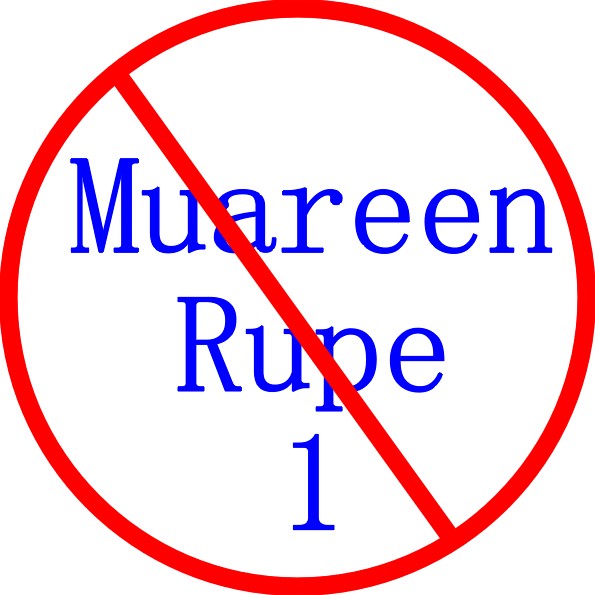 |
|||||||||||
             |
A Grieving Nation: A Coerced State of Beingby Linda McKinney Today we commemorate the Pulse nightclub shooting in which 49 individual lives - lives loved, important, productive in some way, vital - were snuffed out by an individual hateful shooter. Loved ones, coworkers, friends and community grieve. Earlier this year we commemorated the mass shootings in other places, as will we later this year the same. In September we commemorate the horrific 9/11 attacks that scarred our nation's psyche and united us for at least a while in prayers for those who were still under the buildings and the loved ones of those who were lost, in patriotism and unity for our nation under attack, and in the hope of a nation rebuilding. Although this won't be popular, and I will probably be attacked for asking the question and writing this, for how long shall we publicly grieve as a nation after these abominations? One of the healthy things to do after a loss used to be to "move on", keep living our lives for the sake of those we have lost who would want us to move forward and live, keeping their memories alive in our hearts, but not so fresh that it kills us with grief. Annually now we, as a nation, are supposed to - are expected to -- grieve on anniversaries of school shootings (except Columbine for some reason), on the anniversary of the Pulse nightclub shooting (what about the Fort Hood shooting; is that not worth grieving over?), for the 9/11 attacks: and to not just grieve, but give blood, establish a memorial, and form a committee to ensure the grief continues. For how long shall we be required to do so? For how long should we focus on our loss and can it be healthy to continue to do so? Now, we make it a profession to milk our loved ones' losses, to go on talk shows and attend parades as honored guests because someone we love was taken from us by a mad man, or a group of mad men, and we need the attention that our grief buys us. It is our life's work to remember our pain and to make sure everyone else does, too. It makes us feel good to wear our pain on our sleeves and bring it out and show it off to anyone and everyone, whether or not they are interested. We pour ourselves into getting the attention our grief brings us at first and then we make sure that it brings us more. We bow down to it and honor it on every occasion we can, and make it our god because it brings us what we crave: attention and sympathy. Grief isn't supposed to ruin our lives, but some allow it to. We are supposed to be strong and handle it, even if we have to get help to do so. Getting help to handle our grief, though, is better than giving in to it and better than milking it for whatever it may bring us. Grief shouldn't be a carte blanch for making demands upon people; especially when the tragedy that tore a loved one from their family is years (or even decades) old. Grief should be experienced, gone through, then gotten through, and over with. It should serve to make us stronger, not richer, not elected. Yes, I said "richer" and "elected" because that is what some have been doing with their grief lately. It's the kid who was at the school that was shot up by some lunatic who goes on the stump to make speeches and appear on television to milk the kid's "notoriety" as a "survivor" who is missing the point. It wasn't the fact that the kid survived that made the kid "famous", it was the loss of the kid's classmates. How can anyone milk that for notoriety and think it okay? How can a kid's parents or classmates who also survived think it acceptable to do so? How sick and twisted is it that no one has had the courage to say, "Stop. It's not okay. You survived but it's not your survival that gave you this opportunity. It's my loss!"? Yet, we allow it so that we can "grieve" and live off the grief for as long as we can; demanding that others join us in grieving because our loss was so public and we must have memorials to everything bad that happened in public. It's tragic that it happened and I am truly sorry for your loss, but I shall not grieve for your loved one. I didn't know that person, or those people, so why should it affect me all these years (or even weeks and months) later? Grief is personal, yet as a society, we have made it grandiose, a show, a marker of martyrdom because we lost someone we loved! You must join me in my grief or you're a horrible person! I hold no animosity toward those who grieve. I understand grief, but I understand it as someone who lost a loved one, a friend, family member, who grieved for those lost in 9/11 because it was so huge and it was an attack on our nation and our national security after which some in other countries of other beliefs celebrated our loss and their beliefs' attacks on us. They didn't grieve their losses although they lost nine and more people of their own beliefs in the attacks because it wasn't about their losses, it was about ours. Those who trade on the loss of their loved ones remind me somewhat of that attitude. Moving on is no longer something that is acceptable. In personal losses I suppose people do, but not in publicized losses that are "big news" and make the headlines nationwide, or even worldwide. I understand the 9/11 memorial and the loss that was so huge: for America 3,000 souls, for the world many more. What I don't understand is not moving on from that. Not wanting to take the grief and make it my own, hold it close and saying "I've shared enough. It's mine now. Please look away." Why do we not make the 9/11 memorial service less about our personal loss and more about the fact that our nation was attacked, we survived the attack and we are stronger and more resolved to prevent another such attack because of it? Can we not do a memorial service that will honor those who died without reading the names annually, focusing instead on the strength of our nation and our recovery? It's been almost twenty years; maybe after that milestone we can do so? Or shall we worship those whose lives were taken so unexpectedly that horrible day for the next ten thousand years? When is enough? For how long shall we grieve publicly as a nation and not move on? It is not my intention to hurt those who are hurting, but it is time that we have this conversation. It is time we find out what to do when it happens again, and how to move past it. We shall have more mass shootings because people's hearts are wicked and evil, not knowing right from wrong, or not caring as long as they get their revenge, attention, whatever. It will happen again because they have a tendency to attack where people are not allowed to have a weapon to fight back and stop the terror (acknowledged; in the 9/11 attacks there could be no fighting back to stop them). I ask it again, for how long do we have to grieve as a nation before we can say, "Enough."? Annual observances are covered by journalists because "If it bleeds, it leads", and people bled and died on these day, but how ghoulish is it that we allow them to feed on that? Should we allow them to make money off of our losses; allowing them to sell papers, advertising and subscriptions off of the blood of our loved ones? Or should we perhaps move our grief into that "private" category again and prevent them from profiting off of our loss? Would that not be a wise thing to do: privatize our grief so that advertisements for shoes, movies and car dealerships can't be sold because our loved ones died at the hands of a mass murderer and the papers/websites/television stations are making money selling ads during the special reports they will do about their deaths? Is that really what your loss is about: supporting the news industry? Sudden losses are difficult enough without having the added burden of having a journalist asking questions, calling, camping out in front of your house to get a story. Tragedies are the life's milk of the news industry, but why help that be the case? Why not hold your grief close to you, make it as precious as it should be and not play into the hands of those who will profit from it, unless you plan to include yourself in that "profit margin"? When you give interviews to magazines (at a cost, of course), or appear on television shows (gaining fame and perhaps for pay), then are you not cheapening your loved ones' loss and turning it into what it should never be: a pay for death scheme? I know I shall be eviscerated for writing this. That's okay. I'm strong enough to handle that. I know I am now labeled a "horrible, heartless, uncaring, unfeeling, sub-human" for even thinking these things. That's okay, too. I can handle that. Maybe that's the kind of thing we need for our nation, though; the strength to handle things without making a national showcase of it, without making it everyone's duty and responsibility to share in our grief annually, and without making it a mockery that journalists make money off of annually as well. Maybe we need a little more strength and a little less public grieving in this nation to be a healthier nation and to move on with our lives. Maybe the truth that "We must keep on living" should be emblazoned across the sky after every terrible thing that happens to us. Maybe that's what we should be doing instead of demanding adherence to our grief and participation in it (no matter how forced or insincere) from those who had no part in the lives of our loved ones. Maybe we need a little more strength and a little less commemorating of our sleeve-held heartbreak to be a better nation. Barring that strength and resolve, we shall spend every day in the not so distant future commemorating a tragedy, wallowing in our public displays of despair and heartache, and shutting everything else down so that we can sorrow to our hearts' content. Days will be no more than "Today we remember…" whatever it was that happened on that day that broke the hearts of many, but actually touched relatively few. After all, I didn't know anyone who died in the attacks of 9/11 and it broke my heart that it happened because our nation was so devastated and families were so hurt and it was such a shock; but it didn't really touch me because my family members survived. That's why I'm so heartless in writing this, you say: I didn't lose anyone so I'm terrible for saying these things. Perhaps. On the other hand, though, perhaps it's time these things be said and we learn to live again and not just in the shadow of our grief. Is that not what our loved ones would want, after all? Remember the older stuff is on Page Deux or on the Storage pages. |
||||||||||
This website created by, maintained by and copyright 2008 by Linda McKinney; because Freedom isn't Free,
but speech supposedly is!
Do NOT copy without prior written permission from the author.
Power By Ringsurf
